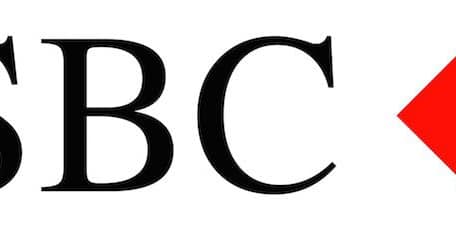
Businesses see end to global trade slump; US, Europe to lead recovery
• Stabilisation of China and stronger investment in developed economies to support world trade
• Cyclical recovery in key sectors
• Trade liberalisation efforts are gaining traction
After a sharp slowdown this year as emerging market demand stalled, businesses expect to see the West lead a tentative recovery in global trade that should broaden and accelerate over the medium term, two new indicators from HSBC show.
Whilst the global Trade Confidence Score fell 4 points to 120 in the second half of 2015, the majority of businesses surveyed (64%) still expect merchandise trade volumes to increase over the next six months. Looking further ahead, the Global Trade Forecast sees import growth in the US and Europe laying the foundations for a moderate rebound that will gain pace as economic conditions in China stabilise.
World merchandise exports
Stuart Tait, Head of Global Trade and Receivables Finance at HSBC, said: “Trade has been hampered by a number of factors this year – from falling commodity prices and Chinese industrial output to the strength of the US dollar. What’s interesting is that this recent subdued performance is more consistent with a period of economic recession than of recovery. But we’re not in a global recession, and this gives us reason to see this as a transitional downturn in which we’ve passed the lowest point.”
HSBC Malta’s Head of Commercial Banking Michel Cordina said: “The expected increase is international trade is good news for businesses wanting to grow globally. Through our Malta Trade for Growth initiative and the €75 million Fund, our customers can benefit from the emerging opportunities from around the world.”
Outlining key drivers for the recovery of trade, the Forecast points to five global trends that will have a positive impact:
• The stabilisation of China’s economy
• Stronger investment spending supporting solid growth of import demand in the developed markets
• Cyclical recovery in key sectors
• Trade liberalisation gaining traction
• Expanding opportunities for growth in services trade
According to the report, despite the near-term challenges facing leading emerging markets, especially China and Brazil, many emerging economies benefit from strong economic fundamentals. This means they are likely to be an important driver of global economic growth and trade over the medium-term. The economies of Asia are still expected to be the main drivers of global trade over this time period, with ‘south-south’ flows representing the fastest-growing trade corridors.
Cyclical sectors such as transport equipment are expected to be the greatest beneficiaries of the upturn in the near term, although intermediate inputs such as chemicals and machinery will increasingly benefit as global investment strengthens. The recovery will gradually boost demand for raw materials and mineral fuels, giving support to commodity prices and helping to expand trade further in value terms.
Policy moves towards trade liberalisation continue to hold the potential to provide an upside surprise for the performance of global trade. Notable progress at the World Trade Organization includes the pending ratification of the Trade Facilitation Agreement and the completion of a draft agreement on expansion of the Information Technology Agreement. Moreover, at the regional level, conclusion of the draft agreement for the Trans-Pacific Partnership, is an important step towards the largest new trade pact in 20 years. These agreements are pertinent not only for merchandise trade, but also for services trade, which fell less sharply than trade in goods during the global crisis and experienced more robust growth since.
The biannual HSBC Trade Forecast is designed to help businesses capitalise on growth opportunities in the medium term. In November 2015 HSBC published its innovative Trade Winds report which explores the drivers of future trade in goods and services, from falling air freight costs to 3-D printing.
- December 16, 2015 No comments Posted in: Business Tags: HSBC, Trade Forecast





